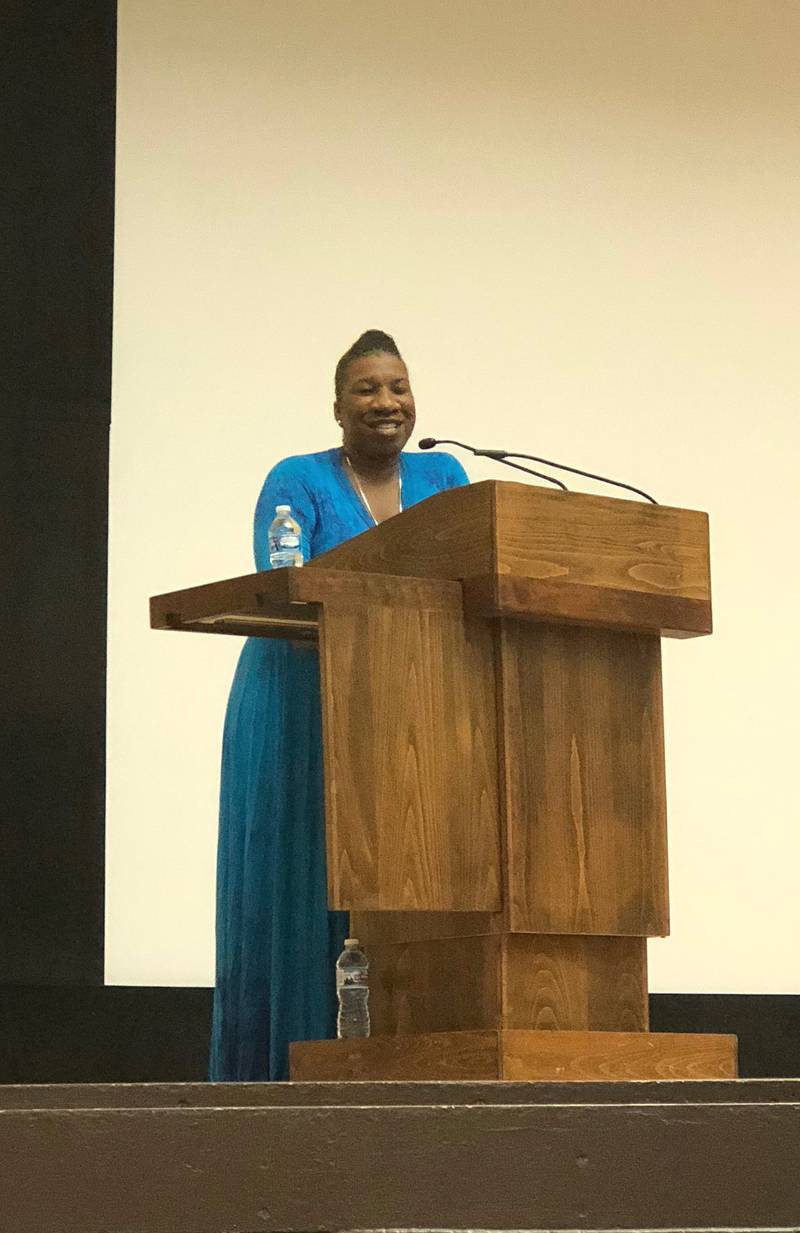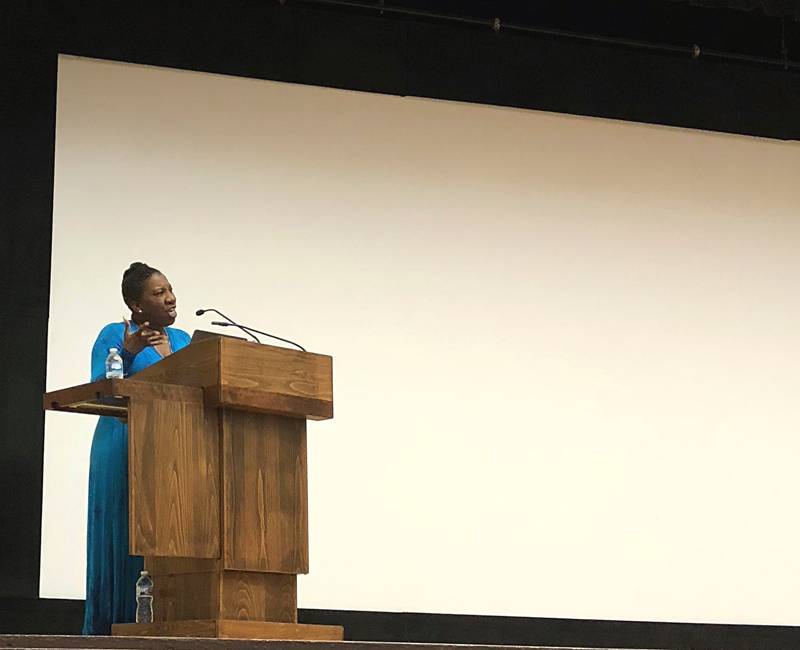“Don’t just celebrate me if you’re not going to stand for the work that I am doing.”
Tarana Burke, founder of the Me Too movement and a 2017 Time Person of the Year, spoke to a group of mostly U of I students at Foellinger Auditorium last night about the origins of the movement, what it is, what it’s not, and how they can be catalysts for change on campus and beyond.
Born and raised in the Bronx in a culture of activism with a drive toward organizing, it was her work with the 21st Century Youth Leadership Movement, first as a participant and after college as a staff member, that led to the birth of Me Too when a teenage girl confided in her about being sexually assaulted as a child. Not knowing how to respond in the moment, she later realized that as a survivor of sexual violence herself, she could’ve just said “me too.”
She set about simply bringing discussions and education on sexual violence to high school and eventually middle school students in her community (which was Selma, Alabama). It was about giving them language to put words to their experiences, and a space to begin healing. And it continued this way until October of 2017. When actresses in Hollywood began to speak out about the horrific sexual violence perpetrated by mega producer Harvey Weinstein, a tweet from actress Alyssa Milano with #metoo catapulted the movement into the stratosphere.

Burke was casual and at times self-depricating, yet exuded passion for the work that she does. While there were a decent amount of students there, I was somewhat disappointed that the auditorium wasn’t packed, especially at the moment that we are living in right now, where a President accused of sexual assault has nominated a Supreme Court justice accused of sexual assault and Sean Penn randomly shows up on TV saying that Me Too divides men and women. Meanwhile, the Secretary of Education is pushing policies that protect colleges and those accused of sexual violence rather than bolstering protections for the victims, and the woman who dared to come forward about Brett Kavanaugh is facing death threats and harassment.
 While she spoke of her appreciation of the explosion in recognition of Me Too, she lamented the fact that while millions used the hashtag and shared their stories, not much is changing in terms of policy or culture. She also warned against making the movement what it is not: It is not about “taking down men.” Unfortunately that is what the media has made it, which takes the focus off of survivors and their healing, and also ignores the fact that men can be victims of sexual violence as well. Her movement, the one she began over a decade ago, continues to be about creating a global community of survivors and guiding them toward healing.
While she spoke of her appreciation of the explosion in recognition of Me Too, she lamented the fact that while millions used the hashtag and shared their stories, not much is changing in terms of policy or culture. She also warned against making the movement what it is not: It is not about “taking down men.” Unfortunately that is what the media has made it, which takes the focus off of survivors and their healing, and also ignores the fact that men can be victims of sexual violence as well. Her movement, the one she began over a decade ago, continues to be about creating a global community of survivors and guiding them toward healing.
After challenging students to examine the policies and culture surrouding sexual violence on campus, there was a Q & A with lots of great thought-provoking questions brought by students. One of the more inspiring interactions was when a trio of young Centennial High School students came up to the mic and shared the work they were doing in their school, including challenging language in the dress code that discriminates against female students. They just about rendered Burke speechless, but she used the moment to direct them to resources on her website that could support their work.
Kudos to the Illini Union Board for bringing such an important speaker here; I wish that more of the campus would’ve heard and been inspired by her words.
Photos by Jessica Hammie








